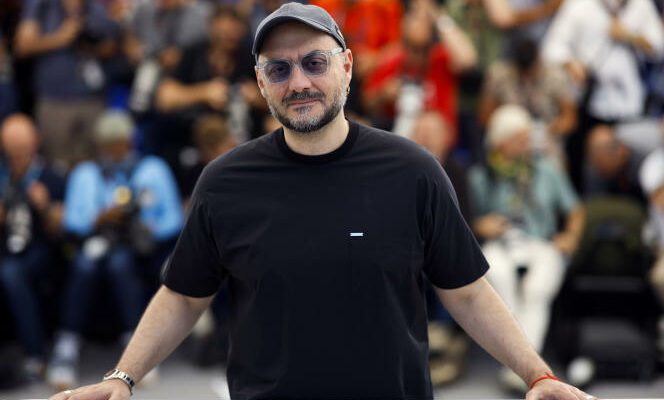Incredible destiny that of Kirill Serebrennikov. An explosive cocktail on its own. Russian Jewish father. Polish-Ukrainian mother. Born in Rostov-sur-le-Don (Russia), fifty-three years ago. Add, over time, physicist fired acrobat, polymorphic artist (theater, cinema, opera), inveterate agitator, homosexual and asserted democrat. Freedom, diversity, refusal of identity assignment and narrow-minded patriotism. Everything that Russian power abhors. It had to go wrong. He found himself accused of embezzlement, placed under house arrest in 2017, given a three-year suspended prison sentence in 2020. He escaped from Russian jail in March 2022. The release of Tchaikovsky’s Wife, striking portrait of an alienation, is equivalent for the director to a liberation.
In 2013, you thought about the Tchaikovsky project. Why was it not done at the time and how has it evolved since then?
Because the project damaged the monument of the musician as desired today by the Russian government. Monuments are preferred to human beings in my country. In truth, the character – and status – of Tchaikovsky in Russia is so complex, he has evolved so much over time, that he can sustain not one but ten films. Mine offers only one angle of vision, that of his tormented relationship with his wife because of his homosexuality. But you have to understand that at the time his music, even though he was the first Russian musician to become famous in the West, was not considered Russian in Russia.
The suffering and the blind love of this woman invite us to consider the film as a powerful metaphor for the alienation of the Russian people from a power that has never ceased to bleed them…
The film is a mirror, all interpretations are obviously welcome, and yours, in the current context, deserves consideration. But, honestly, when writing the film, I never thought of Tchaikovsky’s wife as an incarnation of the Russian people. Rather, I saw her, when she had until now been considered an idiot petty bourgeois, as a kind of tragic character. The fault lies with the musician, who will have considered it useful for the advancement of his career to get married, and the affair has quite simply turned into a nightmare.
You are witnessing today, free at last, the release of a film written and shot under oppression. Isn’t that a strange feeling?
It’s all along that the strangeness has accompanied us. We shot the film during the pandemic, with fear in our stomachs. When we finished it, censorship-enhancing laws had been enacted in Russia that made it impossible to exploit. A large part of the filmed images then ended up on the Internet, probably because of the secret services, to discredit me. Then war broke out, and I was accused, when the film was shown in the West, of making Russian propaganda!
You have 53.16% of this article left to read. The following is for subscribers only.
